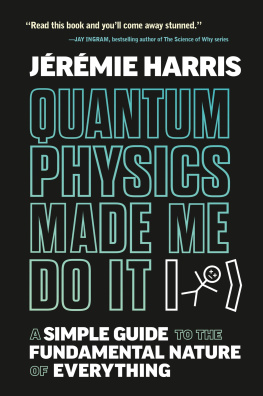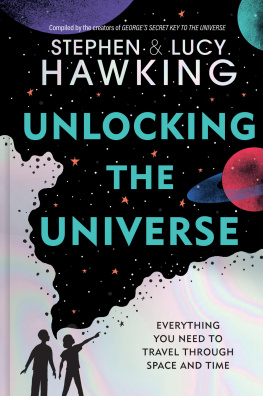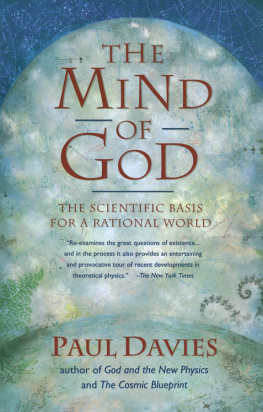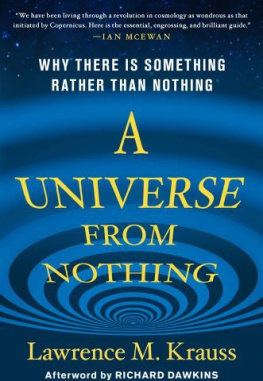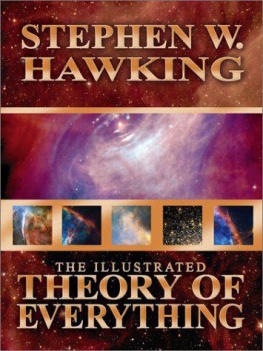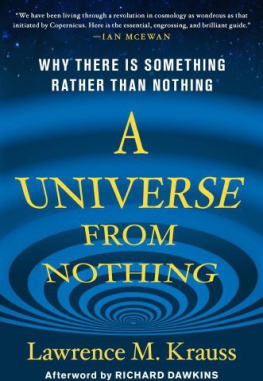Lawless Universe
Lawless Universe
Science and the Hunt for Reality
JOE ROSEN

2010 The Johns Hopkins University Press
All rights reserved. Published 2010
Printed in the United States of America on acid-free paper
9 8 7 6 5 4 3 2 1
The Johns Hopkins University Press
2715 North Charles Street
Baltimore, Maryland 21218-4363
www.press.jhu.edu
Library of Congress Cataloging-in-Publication Data
Rosen, Joe.
Lawless universe : science and the hunt for reality / Joe Rosen.
p. cm.
Includes bibliographical references and index.
ISBN-13: 978-0-8018-9580-7 (hardcover : alk. paper)
ISBN-10: 0-8018-9580-4 (hardcover : alk. paper)
ISBN-13: 978-0-8018-9581-4 (pbk. : alk. paper)
ISBN-10: 0-8018-9581-2 (pbk. : alk. paper)
1. Objectivity. 2. SciencePhilosophy. I. Title.
Q175.32.K45R67 2010
501dc22 2009046114
A catalog record for this book is available from the British Library.
Special discounts are available for bulk purchases of this book. For more information,
please contact Special Sales at 410-516-6936 or specialsales@press.jhu.edu.
The Johns Hopkins University Press uses environmentally friendly book materials,
including recycled text paper that is composed of at least 30 percent post-consumer
waste, whenever possible. All of our book papers are acid-free, and our jackets and
covers are printed on paper with recycled content.
For Mira
PREFACE
THE ACHIEVEMENTS OF SCIENCE, and especially of physics, since the start of the twentieth century have radically changed the conception of nature we had held in earlier times. These achievements have revolutionized our view of the universe, even of reality itself. We surely enjoy many of the technological benefits accruing from these advances of science, and also suffer from some of the results. But it is on our intellectual grasp of the world around us and on our role in it, even on our philosophy of reality, where the impact of modern science is truly shattering. As it happens, this intellectual adventure of humankind is largely confined to the circles of scientists and of science-oriented philosophers. And that is a great pity. The general public, who pays for this exciting enterprise, should be given the opportunity to share it.
Fortunately, a number of scientists, who possess the all-too-rare talent of being able to explain their fields to those willing to make the effort to understand, have written popularizing books in recent years. Among them are scientists who themselves play active, even pivotal, roles in the advancement of modern science. Moreover, a number of excellent science writers, who have learned their science well, have joined them. Together, they have produced a wide selection of remarkable books. These books present, in a style accessible to the curious layperson, the modern scientific conception of the fundamental aspects and phenomena of nature, as well as the impressive achievements of scientists in gaining understanding of those aspects and phenomena. Such books are most welcome. All praise is due the authors attempts to share the excitement with those for whom science is not their way of life.
I hold a serious reservation, however. It seems to me that the lay reader is too likely to gain the impression that not only is science capable of attaining full understanding of the material universe as a whole, in all its aspects and with all its phenomena, including the role of Homo sapiens in it, but that science is on the verge of doing so. Some of these authors appear to believe that themselves. They seriously consider the possibility of a Theory of Everything, capitalized just like that, and occasionally reduced to the acronym TOE. One author even declares that we might know the mind of God! Others dont commit themselves, but allow that impression to develop.
Science, by its nature and structure, cannot in principle comprehend the material universe as a whole. Through science we can, and indeed do, discover order and laws governing various aspects and phenomena of the material universe, and we gain understanding of them. But the material universe in its entirety intrinsically lies beyond science. Within the framework of science, the concept of a law governing the universe as a whole is meaningless. An understanding of everything, a Theory of Everything, even only of everything of material nature, is but a mirage. As far as science is concerned, the material universe as a whole is orderless, lawless, and unexplainable. Any understanding of the whole, if it is to be found at all, can come only from outside science, from nonscientific modes of comprehension and insight.
The main theme of this book is that science, its phenomenal insights notwithstanding, can go only so far in comprehending nature. In this book, well see just how far science can go. Well consider what the domains of science and of metaphysics are, where science leaves off and metaphysics sets forth. Yet well observe that science and metaphysics are intimately entangled: metaphysical considerations are unavoidable in science, and science influences our metaphysical positions. Well learn what science tells us about reality. One thing it tells us is that the objectivity it seeks is not to be found at the level of the world of our personal perceptions and must lie in a deeper reality, one that science does not fully comprehend and likely never will.
The book begins with a discussion and comparison of objectivity and subjectivity. I have come to realize that many human difficulties, even tragedies, stem from an overemphasis of the subjective and a confusion between the subjective and the objective. It is objectivity that we seek through science.
Another theme of the book is an apparent contradiction, even a paradox. On the one hand, the universe as a whole is intrinsically orderless, lawless, and unexplainable through science. Yet on the other hand, it is obvious that within the universe there are order and laws that science comprehends and explains. How can there be both order and law within the lawless universe?
This leads us to, among other things, the anthropic principlethe use of the existence of human beings as an unconventional explanation of other aspects and phenomena of nature. Following a thorough consideration of its advantages and limitations, well see the true status of the anthropic principle as a scientific explanatory tool.
Yet another thread is the position of humankind in the universe and in science. That thread leads us to the fact that science is a human endeavor. It also leads us to the anthropic principle.

This book is a sequel to, a complement for, even an antidote for, books that create the misimpression that science can explain everything. I hope you have already read one or more of them. (Reading them would be useful here, but not essential.) But if you have indeed formed the mistaken impression Im concerned about, I hope to remedy that. In any case, I hope youll find that what I have to say is interesting.
My approach is to start from the rather basic definitions and concepts underlying science and to develop themthrough simple logic and common senseto the conclusions I want to convince you of. Since Im a theoretical physicist, my approach and point of view are, not surprisingly, those of a theoretical physicist. Physics, the most fundamental of the natural sciences, is my model of a science. Other natural sciences differ from physics and from each other, not only in their subject matter, but also in their methods and fundamental conceptions. Yet there is sufficient basic similarity and overlap among all these endeavors to justify my using the term
Next page

